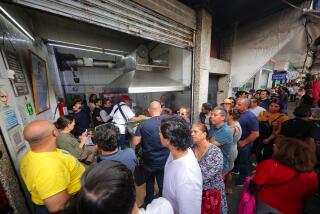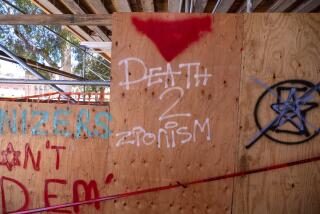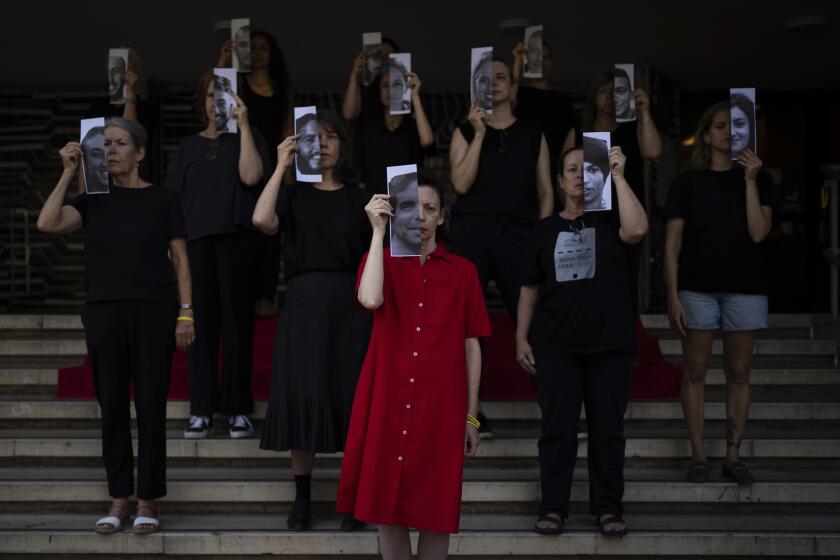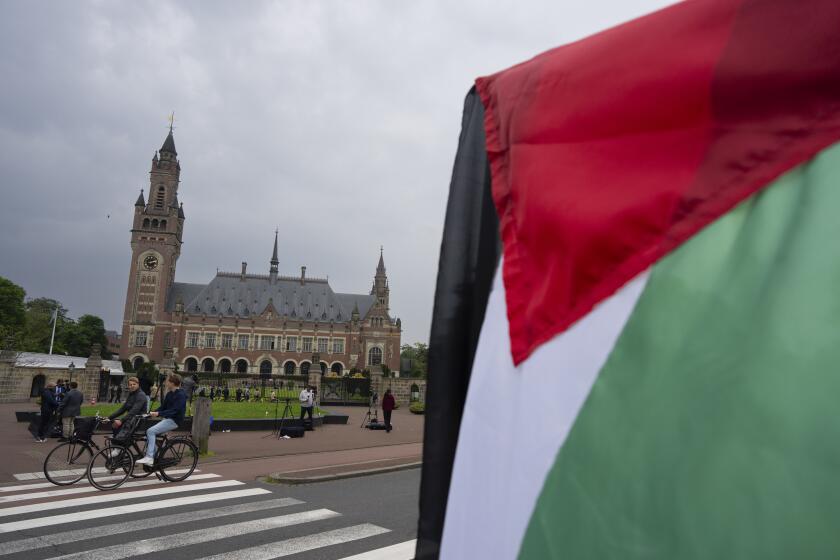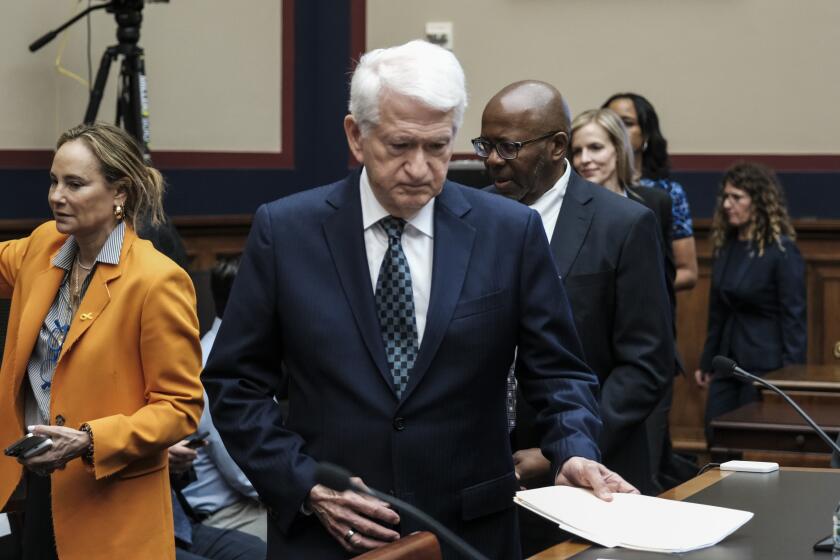Liberians Have a Stark Choice in Runoff Vote
In a hotly contested presidential runoff seen as too close to call, Liberians went to the polls Tuesday to choose between two sharply different candidates: a former soccer player who never finished high school and a Harvardeducated economist and grandmother.
The runoff, necessary because none of the 22 first-round candidates won more than 50% of the vote, will have an unprecedented result no matter who wins -- producing either Africa’s first elected female president or its first soccer star head of state.
Athlete George Weah, 39, won the first round Oct. 11 with 29%, while former World Bank official Ellen Johnson-Sirleaf, 66, finished second with 19%.
Both candidates promised voters they would keep the peace, create jobs and bring basic services like water and electricity to the population. After a strong turnout of 70% in the first round, participation appeared lower Tuesday.
The vote is designed to usher in an era of peace and stability in Liberia after 14 years of civil war. It is seen by many as a crucial first step in rebuilding a country whose economy, roads, schools and hospitals have been shattered by conflict and successive corrupt governments.
Alan Doss, head of the U.N. Mission in Liberia, declared Tuesday’s vote peaceful and transparent, with only a few minor incidents reported.
“Today’s runoff election offered the people of Liberia an opportunity to leave behind the conflict that has devastated this country for so long and turn the page on a very dark chapter in their history,” Doss said.
But claims made by Weah in recent days that he actually won 62% in the first-round vote alarmed some observers who feared his assertions could rouse volatile young supporters of his Congress for Democratic Change to violence if he failed to win the second round.
“Weah won the first round with 62%, but we didn’t do anything because we want peace, because we are patriotic,” said Mike Jordan, a 34-year-old unemployed mason.
The allegations by Weah and his supporters drew a fierce rebuke from National Electoral Commission Chairwoman Frances Morris Johnson on Tuesday.
“They are trying to undermine the state,” she said.
Max van den Berg, the head of the European Union observer mission, also expressed concern about the comments.
“All these kinds of things create unrest in the political climate,” he said Tuesday.
Both candidates, though, have pledged to accept the results. Final vote counts are expected in two weeks.
Without any national polls, the race was nearly impossible to call, said Tom Kamara, editor of the New Democrat newspaper. However, he thought that a lower-than-expected turnout would benefit Johnson-Sirleaf.
About 230 international monitors and 4,000 Liberian observers monitored the vote, after the first round was described as free and fair by international observers including the Carter Center and the European Union.
In the capital’s tatty downtown, the din of generators fills the air, and the gutters are clogged with plastic bags. There are no basic services such as water or electricity, and many buildings are shells, housing people displaced by war. The nation’s illiteracy rate is estimated at 85% and unemployment at 80%.
The bulk of Weah’s supporters are young, jobless and uneducated, many of them ex-fighters. They call him “The King” and see his rise from a Monrovia slum to European soccer clubs such as AC Milan as a modern fairy tale. Many of them celebrate his lack of formal education, arguing that he is untainted by the corruption that has defined Liberia’s educated elite.
Others praise him for his efforts to help Liberia’s former combatants lay down their weapons in his role as goodwill ambassador for UNICEF.
“He caused us to disarm,” said Yarpeh Broh, one of many former combatants milling about Weah’s campaign headquarters.
Casting his ballot, Weah said his first priority would be peace and “bringing people together to sit down at the table and see how better we can move Liberia forward.”
Johnson-Sirleaf campaigned strongly in the final days, saying her rival lacked the education and experience needed to rebuild the country.
“All Liberians should go out and vote their conscience for the betterment of their lives and their country,” she told reporters Tuesday. “I’m very confident the Liberian people will vote for me.”
“I voted for the woman,” said Lawrence Sumo, a 52-year-old unemployed father who proudly held up his ink-stained thumbnail indicating he had cast a ballot.
“She’s the one who can lead the country. Ellen is well known internationally. She has all the practical skills. She can do it.”
Special correspondent Nichols reported from Monrovia and Times staff writer Dixon from Johannesburg, South Africa.
More to Read
Start your day right
Sign up for Essential California for news, features and recommendations from the L.A. Times and beyond in your inbox six days a week.
You may occasionally receive promotional content from the Los Angeles Times.
